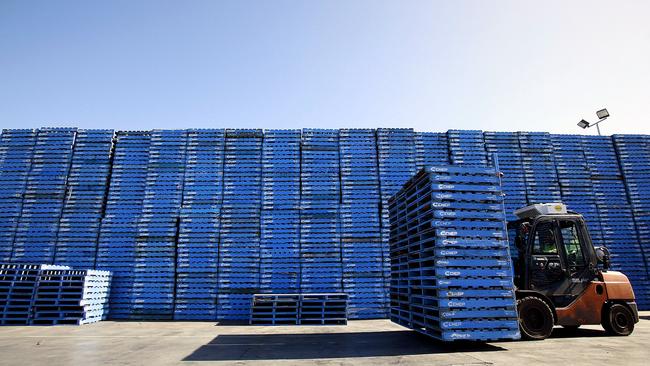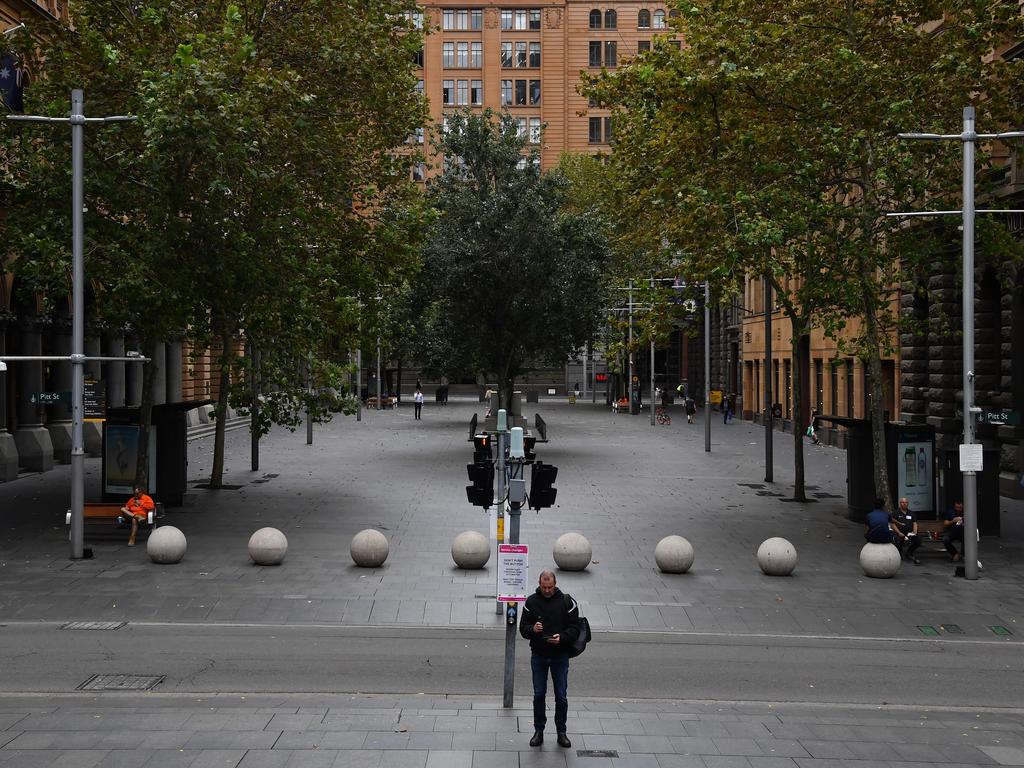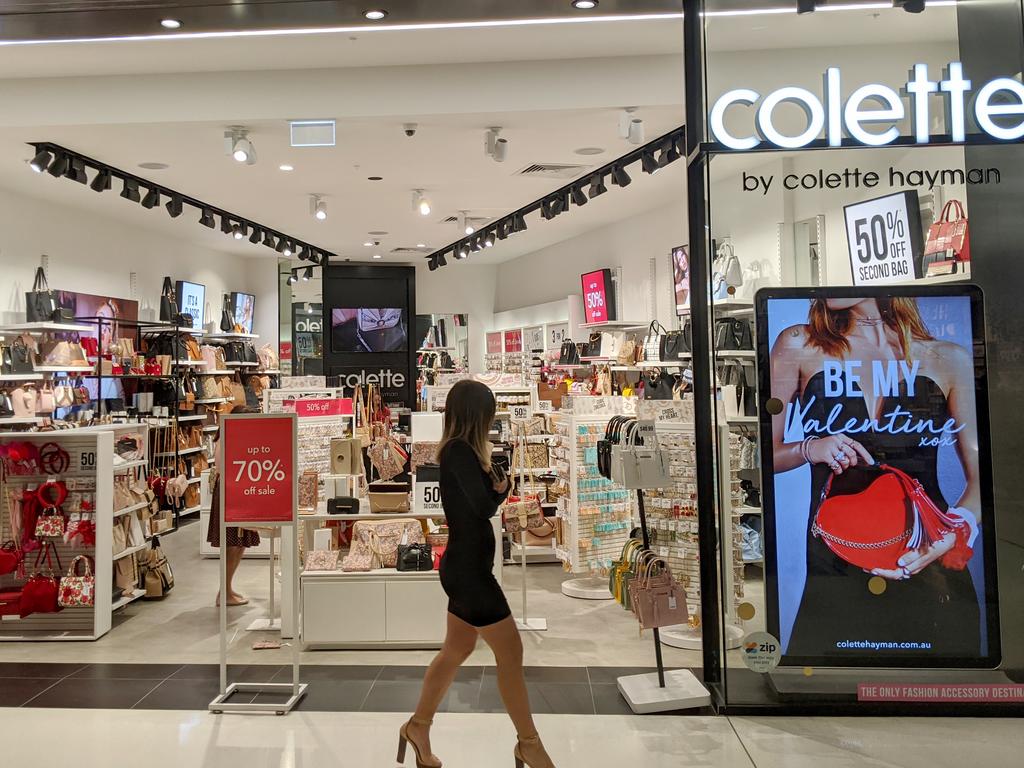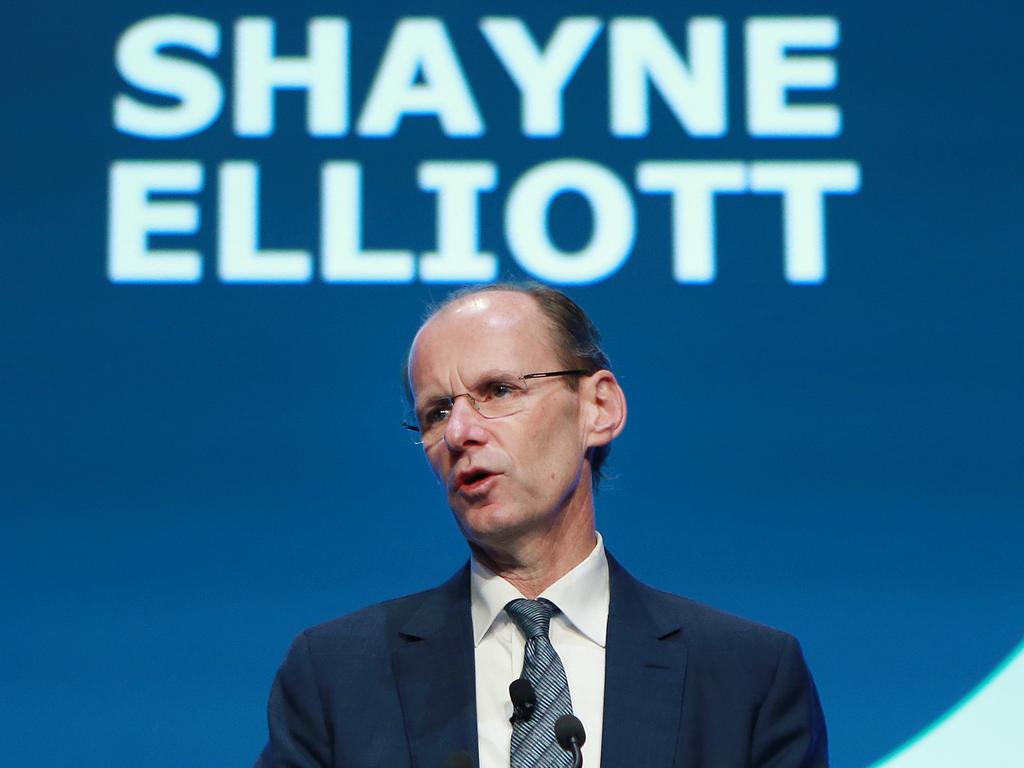Brambles, Linfox benefit from surge buying at grocery stores
Pallets giant Brambles and logistics firm Linfox are beneficiaries of surge buying in grocery stores in the US, Europe and Australia.

Pallets and pooling giant Brambles and logistics giant Linfox have emerged as major beneficiaries of surge buying by customers in grocery stores in America, Europe and Australia in the wake of the coronavirus pandemic.
Linfox, owned by trucking billionaire Lindsay Fox, has been running 800 trucks a day across Australia in the past two weeks. During the Christmas peak the company ran 500 trucks a day.
According to CBA data released on Tuesday, food spending over the past week is up 49.7 per cent on the same week a year ago, with grocery store and supermarkets sales up by a stunning 74.1 per cent.
Brambles’ CHEP pallet business is a major beneficiary of surge buying, especially in its biggest market of North America, because of the large pallet pool it has available compared to its key competitor Peco.
“Right now Brambles is riding the supermarket wave. The underlying business is quite strong. It depends how long it goes on for,’’ its chairman John Mullen told The Australian.
One analyst said this week that Brambles would enjoy the benefit of the surge volume that was going into the supermarket channel, away from what is known as the food service channel, which includes restaurants and cafes.
These are now suffering following the mandatory government-induced closures. Supermarket pallet channels are also generally more profitable as the turnaround rate is faster.
Brambles chief executive Graham Chipchase talked up the resilience of its global business amid ongoing macro-economic and political uncertainty in February. Its core North American business represents 45 per cent of revenues, while its European business represents about 30 per cent.
Brambles shares closed 16c, or 1.5 per cent lower at $10.25 on Thursday but the shares have held up amid the broader market sell-off over the past three weeks.
A significant proportion of Brambles business is in the food sector, which has been declared an essential service.
Mr Mullen described the current downturn as “more like 9-11 than the GFC”. “If it lasts a month or two or three, things will bounce back. If it goes on for nine months or more, it will fundamentally reshape society,’’ he said. The government was “doing all the right things”.
“But in the GFC situation, people were still going out. That money went into consumption. If we end up in a lockdown like Europe, what do you spend the stimulus on? That makes it a bit different,’’ he said.
While he said his company’s boardroom — he is also chair of Telstra and logistics giant Toll Holdings — had a “a wartime cabinet sort of feel” to them, he said it was important not to panic. He said Toll, which is owned by Japanese postal giant Japan Post, was currently having “the best and worst of both worlds”.
“Toll is one of the biggest deliverers to Coles and Woolies but international trade volumes are down 50 per cent,’’ he said.






